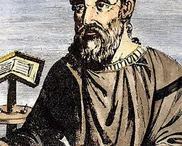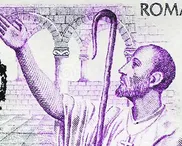This year is the 1,700th anniversary of one of the great turning-points in church history, the Council of Nicaea (325), which was called to deal with a matter that was of the highest importance: Who is the God who has revealed Himself in the person and work of Jesus of Nazareth?
The quest to answer this question is deeply rooted in the Scriptures, where, as the American Presbyterian theologian, Benjamin B. Warfield, once put it, the “doctrine of the Trinity lies … in solution; when it is crystallized from its solvent it does not cease to be Scriptural, but only comes into clearer view”.
Thus, Irenaeus of Lyons (c.130 – c.200), who sought to evangelise the Rhône valley from the church at Lyons, has a perspective on the Godhead that is explicitly Trinitarian. He referred to Jesus as ‘our Lord and God’. He employed the adjective ‘eternal’ to describe the Holy Spirit, thereby implying the Spirit’s deity. And over against the speculation of various heretics known now as Gnostics that this world and its inhabitants came into existence through the work of a being who was not the true God, Irenaeus asserted that God made all things without the assistance of anyone outside of Himself. And yet He did have help, namely, what Irenaeus called ‘the hands of the Father’, namely, ‘the Son and the Holy Spirit’.








'Why are so many Jews atheists?'
"Why are so many Jews atheists?"I hear this a lot.